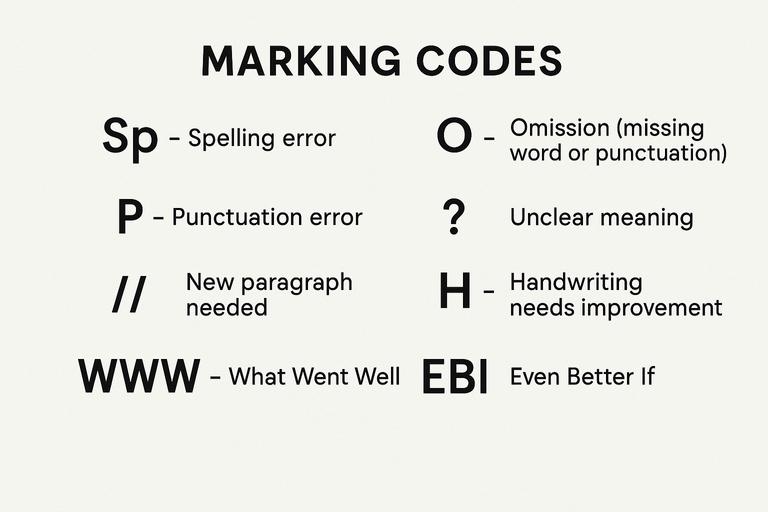
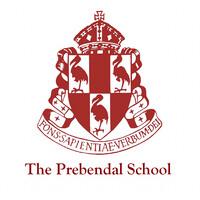











At The Prebendal School, academic excellence is at the heart of everything we do. We are proud of our strong track record of achievement, underpinned by high expectations, a broad and stimulating curriculum, and a culture that nurtures intellectual curiosity.
High Expectations, Exceptional Outcomes


Tailored Teaching, Personal Progress

Rich, Rigorous Curriculum Success Beyond the Classroom



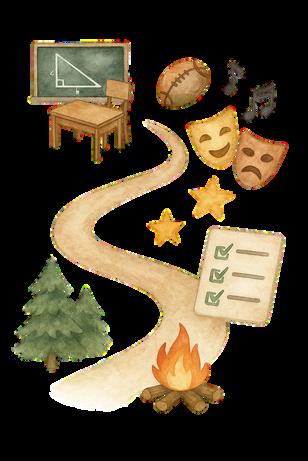
The Prebendal School is a member of PSB which means that we enshrine within all aspects of school life, especially teaching and learning key core skills. Our five skill areas (PSB Stars) are as follows: Thinking and Learning, Reviewing and Improving, Communication, Independence, Collaboration and Leadership. These skills are displayed in classrooms and are present from the Pre-Prep up to Year 8; they link with the houses and the Pre-Prep dinosaurs. These skill areas are recognised in pupil work and in their contributions to school life, and celebrated. Each member of staff displays in a way that benefits their individual way of teaching and the subject they are delivering.
Mrs Tillin - PSB Lead








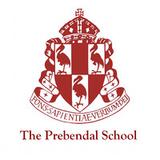

At Prebendal School, we place high value on the way pupils present their learning in their books. Clear, consistent, and thoughtful presentation not only reflects pride in one ’ s work but also supports the development of independence, organisation, and self-reflection all core elements of the PSB (Pre-Senior Baccalaureate) framework.
Each piece of work in pupil books is dated and begins with a clearly stated WALT (We Are Learning To) objective. This ensures that learners understand the purpose of the lesson and can link their work to specific learning goals. For example:

All written work should be written in blue pen. Younger children should use pencil. Pencil should also be used for drawings and diagrams and may be used by some departments such as mathematics, where considered appropriate.
Mistakes should be neatly crossed out with a single line, although an ink eradicator may be used, but not solvent based eg Tippex. An eraser should be used for pencil.


L
Learning experiences are designed to be memorable and engaging, often incorporating visual, hands-on, and emotionally resonant activities We encourage both independent learning and collaborative group work, enabling pupils to problem-solve, share ideas, and learn from one another Group work also fosters key PSB values such as teamwork, leadership, and critical friendship.
Teachers support learning by:
Providing relevant resources and guidance
Offering meaningful feedback
Creating opportunities for pupils to test and apply their understanding
Encouraging reflection and refinement of work
Fellow pupils play an important role too, offering peer support, explanation of ideas, and constructive feedback.
Through this approach, we aim to develop curious, confident, and capable learners who are well-prepared for the next stage of their education.


It is expected that the children will spend an age appropriate time on prep work each day.
The following points are general criteria for completing and setting prep:
Prep set should be meaningful and should reinforce the learning in class.
Active learning preps should be used where appropriate (e.g. French / Latin vocabulary) with regular low stakes testing of vocabulary and spellings.
Form teachers should check planners each week to ensure preps are recorded.
Parents of day pupils are asked to sign planners to show that prep has been done. Supervising staff should sign boarding pupil planners.
Preps should be adapted where appropriate to the needs of the children.
Prep is undertaken either at home or in a form room set aside for this purpose and is supervised by a member of staff.
As a general principle, one prep task should be formally marked by the teacher each fortnight for most subjects; other prep tasks may be self-assessed, peer-assessed (clearly indicated with a different coloured pen), or marked as a class.
Each week, students (with the exception of choristers) should attend at least one club and one prep session.


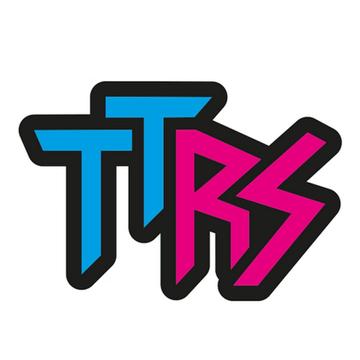

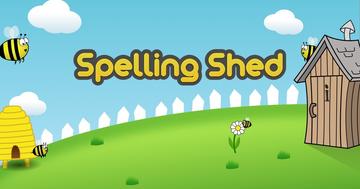
Prep is a time when children can learn the skills of taking responsibility for their work and as such, at Prebendal, we gradually introduce the children to being able to take greater control of their learning. We do this in a number of ways:
1. Prep in Years 3 to 8 will be set on specific days: the preps will be for core subjects with the focus on phonics, reading, spelling, handwriting, times tables, number bonds, and vocabulary. In Year 6, students will also have Latin prep which will usually be to consolidate vocabulary and grammar.
2. Children in all years will use their organisers to note down work set and either the day / date it needs to be done or the date it needs to be completed by. For Years 6-8, extension and support materials may also be found on Teams. From 2025, additional tasks may be set on Seneca, Spelling Shed and TTRS for pupils in KS2.
3. As the children progress through the last few years, the use of research and independent study will become more prominent in the work they are expected to undertake. The students will be guided in research skills through their lessons and in Quadrivium in readiness for the Prebendal Extended Project


The core purpose of assessment is to inform planning and enhance learning. Regular monitoring provides a clear picture of each pupil’s progress, focusing on what has been remembered, which skills have been acquired, and which concepts have been understood.
Assessment also serves a wider purpose. It informs parents about their child’s progress and any concerns, supports communication between teachers and departments, and provides evidence for external agencies where necessary. It also plays a key role in identifying pupils who may need additional support and helps inform setting and streaming decisions, primarily using CAT4 and GL data alongside teacher input.
A range of assessment methods is used throughout the school. These include observation, speaking and listening tasks, informal end-of-topic tests, progress checks, standardised assessments (such as CAT4, GL, and Testbase assessments).




Formative assessment is central to day-to-day teaching. Teachers continually assess pupils through questioning, observation, discussion, and short written tasks. These informal, ongoing checks are used to identify misconceptions, guide feedback, and shape future lessons. Each subject area uses trackers to record pupil attainment and progress over time. These trackers inform termly data drops, which help identify patterns, ensure consistency across subjects and year groups, and support timely interventions.
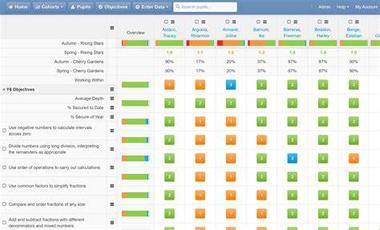

In keeping with the school’s accreditation as a PSB school, we will now be reporting academic performance using one of five narrative outcomes: Emerging, Evolving, Expected, Exceeding, Exceptional.
Significant exam results are kept in the same system, as are CAT results, Spelling Ages, reading levels, writing levels and core department data.
Common Entrance and Scholarship results in Year 8 are also analysed separately by Heads of Departments, the DOS and SLT. All information should be stored electronically in individual department folders on the school’s shared drive, so that any results can be fidelity checked.


Year 1
Michaelmas Term
spelling and reading standardised assessments
‘Running Reading’ records
end of unit tasks for science and maths relating to NC
Data Drop 1
Lent Term
spelling and reading standardised assessments
writing moderation relating to NC
‘Running Reading’ records
end of unit tasks for science and maths
Data Drop 2
Summer Term
GL Progress Tests (maths and English)
end of unit tasks for science and maths
end of year moderation for writing
Data Drop 3
Meeting held at end of Summer Term – Y1 teachers and Y2 teachers. Transfer document completed for each child and assessment information discussed. All documents handed over to new teacher.


Year 2
Michaelmas Term
spelling and reading standardised assessments
‘Running Reading’ records
end of unit tasks for science and maths relating to NC
Data Drop 1
CAT4 tests
Lent Term
spelling and reading standardised assessments
writing moderation relating to NC
‘Running Reading’ records
end of unit tasks for science and maths
Data Drop 2
Summer Term
GL Progress Tests (maths and English)
end of unit tasks for science and maths
end of year moderation for writing
Data Drop 3
Meeting held at end of Summer Term – Y2 teachers and Y3 teachers. Transfer document completed for each child and assessment information discussed. All documents handed over to new teacher.


Year 3
Michaelmas Term
reading scheme records
end of unit tasks for science and maths relating to NC
Data Drop 1
Lent Term
writing moderation relating to NC
reading scheme records
end of unit tasks for science and maths
Data Drop 2
Summer Term
GL Progress Tests (maths and English)
end of unit tasks for science and maths
end of year moderation for writing
Data Drop 3
Meeting held at end of Summer Term – Y3 teachers and Y4 teachers. Transfer document completed for each child and assessment information discussed. All documents handed over to new teacher.


Year 4
Michaelmas Term
reading scheme records
end of unit tasks for science and maths relating to NC
Data Drop 1
CAT4 tests
Lent Term
writing moderation relating to NC
reading scheme records
Yr 4 MTC (mock)
end of unit tasks for science and maths
Data Drop 2
Summer Term
GL Progress Tests (maths and English)
end of unit tasks for science and maths
end of year moderation for writing
Data Drop 3
Year 4 MTC
Meeting held at end of Summer Term – Y4 teachers and Y5 teachers Transfer document completed for each child and assessment information discussed. All documents handed over to new teacher


Year 5
Michaelmas Term
reading scheme records
end of unit tasks for science and maths relating to NC
Data Drop 1
Lent Term
writing moderation relating to NC
reading scheme records
end of unit tasks for science and maths
Data Drop 2
Summer Term
GL Progress Tests (maths and English)
end of unit tasks for science and maths
end of year moderation for writing
Data Drop 3
Meeting held at end of Summer Term – Y5 teachers and Y6 teachers. Transfer document completed for each child and assessment information discussed. All documents handed over to new teacher.

Year 6
Michaelmas Term
reading scheme records
end of unit tasks for science and maths relating to NC
Data Drop 1
CAT4 tests
Lent Term
writing moderation relating to NC
reading scheme records
end of unit tasks for science and maths
Data Drop 2
Summer Term
GL Progress Tests (maths and English)
end of KS2 tests for science and maths
end of year moderation for writing
Data Drop 3

Meeting held at end of Summer Term – Y6 teachers and Y7 teachers. Transfer
document completed for each child and assessment information discussed All documents handed over to new teacher.


Year 7
Michaelmas Term
‘Planned Pieces’ for core subjects
Data Drop 1
Lent Term
reading assessments linked to 13+
writing moderation relating to NC
‘Planned Pieces’ for core subjects
Data Drop 2
Summer Term
GL Progress Tests (maths, English and science)
end of unit tests for reports
Data Drop 3
Year 8
Michaelmas Term
‘Planned Pieces’ for core subjects
Data Drop 1
Lent Term
writing moderation relating to NC
‘Planned Pieces’ for core subjects
Mocks for 13+
Data Drop 2
Summer Term
end of unit tests for reports
Data Drop 3
13+ exams


At Prebendal, we recognise that 13+ is a pivotal moment in each child’s journey. For many, preparation for Common Entrance (CE) remains central to their academic pathway, ensuring rigour, challenge, and readiness for senior school. However, as the educational landscape evolves, not every pupil will sit CE; some senior schools now look to alternative routes such as scholarship assessments, internal testing, or interview-led admissions.
This shift presents us with both a challenge and an opportunity How do we continue to uphold high academic standards, while ensuring that all pupils regardless of the pathway they follow experience a curriculum that inspires curiosity, creativity, and confidence?
Our answer lies in balance. Alongside targeted Common Entrance preparation, we prioritise an experiential curriculum: one rooted in discovery, problem-solving, collaboration, and real-world application. Whether it’s through immersive humanities projects, STEM challenges, outdoor learning, or performance opportunities, pupils are encouraged to think critically, communicate effectively, and develop resilience skills which are equally valuable in exams and in life.

“Academic Excellence, Broader Horizons”
We aim to provide an effective learning environment in which all pupils are extended and enriched. The process of learning should be enjoyable and be conducted in an environment in which achievement is recognised and celebrated The curriculum is planned to provide for the needs of all pupils, with stretch and challenge opportunities and scholarship provision for students with Higher Learning Potential. Teachers should teach for a range of learning skills, including higher order thinking, problem solving and independence. A student would be considered HLP if their GL CAT4 standardised scores exceed 123.
Heads of Departments and Teachers should ensure that they have up-to-date plans (long term and medium term) for their classes and subject areas. Heads of Departments must review the plans of those teaching their subject areas and monitor assessments, as this will inform future planning. Medium term plans/Schemes of Work should be revised and checked regularly to ensure coverage, and plans should be tailored to the needs of the group in consultation with SLT. These plans should be transferred onto the agreed School Proforma, with consideration of High Aspirations /Extension, Support and Variation, Teaching Approaches, Intent and Outcomes, and Success Criteria.

The academic progress of each pupil is regularly assessed through a variety of ongoing assessments, tests and examinations. Staff meetings are regularly held to monitor the progress of pupils. Progress scores in GL/ CATs tests are discussed and recorded using the whole-school analysis sheet.
The Director of Music monitors the significant number of talented musical pupils (i.e. potential and current Music scholars) in the school. The Director of Sport monitors potential Sports Scholars across the range of sports The Head of Art will monitor potential Art Scholars Enrichment opportunities are available to all.

At the heart of our approach to teaching and learning is a commitment to high-quality, reflective practice that supports all pupils to achieve their best. Teaching is monitored and developed through a variety of supportive and robust systems designed to foster consistency, creativity, and continuous improvement.

Exercise books are reviewed regularly, with collections directed by the Director of Studies and in consultation with the Head. Books are made available for reviews by SMT, Heads of Department, and teaching staff These reviews focus on pupil progress, evidence of variation, volume and quality of work, presentation standards, and the effectiveness of marking. Constructive feedback is provided to teachers and, where necessary, follow-up actions are agreed and implemented.
Learning walks are a core component of the PDP process. Positive inquiries are carried out by members of SMT and are intended to support professional growth, not just accountability. Preagreed focus areas are often used to guide learning walks, and a sample of pupil books is also reviewed. Postcards will be left in classrooms after learning walks, as a way to support positivity and excellence
Continuing Professional Development (CPD)
Staff participate in twice-termly academic INSET sessions (in addition to traditional INSET days). These are coordinated by the DOS, Head, and SENCO, and cover a broad range of teaching and learning themes Sessions are often led by internal staff with particular expertise or following external training, and visiting speakers or teachers from other schools are also invited to contribute. The aim is to share excellent practice, encourage reflection, and support all teaching staff in striving for excellence. Staff also access additional training through Educare and the PSB Hub.

ECTs and the Early Career Framework
ECTs are supported throughout their two-year induction in line with the Early Career Framework. They attend the same INSET sessions as other staff, benefit from weekly (Y1) or monthly (Y2) mentoring, and have regular meetings with an Induction Tutor. Time for ECT-related activities is protected within their timetable, and Heads of Department also provide informal support. ECTs attend ISTIP study days and webinars, using accredited ECF materials to support their professional development. All ECTs are encouraged to reflect on their progress using Evidence Trackers, with support from their mentor and the Deputy Head.
Heads of Department are expected to conduct learning walks each for each member of their team at least once a year. These are developmental in nature and designed to share best practice. They are not used for PDP unless agreed in advance with the teacher. HODs also support staff by modelling good practice, facilitating collaboration, and ensuring that departmental expectations are upheld.
Each Lent Term, HODs lead a departmental moderation session. This involves reviewing work across year groups to ensure consistency in marking, variation, quality, and quantity of work. The moderation process strengthens internal standards and helps align expectations across the school. Digital records are to be kept as evidence
Michaelmas Lent Summer
HODs to revise actions plans and check data sheets.

HODs meet with Director of Studies to discuss GL data.
HODs evaluate current provisions and produce a SWAT analysis.
HODs revisit action plan to evaluate.
HODs meet with Director of Studies to discuss internal data.
HODs check data sheets for consistency.

HODs and Director of Studies to produce whole-school analysis for data and attainment.
HODs adjust, edit and review action plans for the next academic year.
End of Year Presentation to SLT (GL and internal data).
At The Prebendal School, we believe that effective feedback: Supports progress and independence; Builds pupil confidence through praise and constructive guidance; Promotes a culture of reflection and improvement; Is manageable for teachers and maximises time in the classroom.
Marking Principles
Every piece of work will be marked or acknowledged in some way. Feedback must be: Timely – close to the point of learning; Specific – highlighting both strengths and areas for development; Understood by the pupil – accessible and actionable; Time-efficient – leveraging methods like live marking and verbal feedback.


We use a colour-coded approach:
Pink ("Pink Positives") highlights positives and achievements. Green ("Green for Growth") identifies areas for development or improvement.
Effective marking and feedback should:
Include constructive, formative comments and interactive questioning
Set clear, achievable targets that support stretch and progress.
Prioritise key areas for improvement, especially for SEND/EAL pupils.
Correct spelling, grammar, and subject-specific vocabulary as appropriate (with select spellings written out three times).
Be done in a different colour from the pupil’s work, ideally pink and green
Encourage self- and peer-assessment, with clear guidance provided (purple pen)
Allow time in lessons for pupils to read and respond to comments.
Record marks or grades where appropriate to inform tracking and assessment.
Reference IEP targets and PSB skills where relevant, using stamps, stickers, or explicit feedback
Marking should be positive in tone and promote a culture of high expectations, reflection, and continual improvement.


